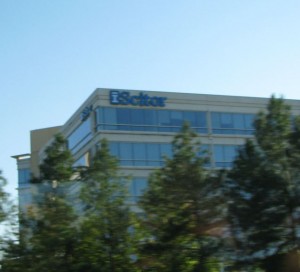 TIME Magazine, of all places, has an amazing article about Washington this week. It’s called “Bubble on the Potomac,” and it’s about the “new affluence” that sets this gilded city “apart from the country it governs.”
TIME Magazine, of all places, has an amazing article about Washington this week. It’s called “Bubble on the Potomac,” and it’s about the “new affluence” that sets this gilded city “apart from the country it governs.”
To me, the brilliance in Andrew Ferguson’s reporting is not the incredibly high median income in the region – $102,726 in Northern Virginia’s Fairfax County, for example – but his spot-on analysis of why the DC area is so full of gaudy wealth: what he calls (in a subtitle), “the District of Contracting.” Get this:
The diversity of the Washington economy is an illusion, for each of its business sectors is to some degree a creature of the region’s single great industry–the federal government…
Why the boom? The size of the nonmilitary, nonpostal federal workforce has stayed relatively stable since the 1960s. What has changed is not the government payroll but the number of government contractors. It’s estimated that, thanks to massive outsourcing over the past 20 years by the Clinton and Bush administrations, there are two government contractors for every worker directly employed by the government. Federal contracting is the region’s great growth industry. A government contractor can even hire contractors for help in getting more government contracts. You could call those guys government-contract contractors.
Which means government hasn’t shrunk; it’s just changed clothes (and pretty nice clothes they are). The contractors are famous for secrecy; many have job titles that are designed to bewilder. What is it, after all, that an analyst, a facilitator, a consultant, an adviser, a strategist actually does to earn his or her paycheck? Champions of the capital’s Shangri-la economy like to brag of Washington’s knowledge workers.
And this anecdote says it all:
Peter Corbett isn’t so sure about the wisdom of D.C.’s version of the knowledge economy. Corbett heads a social-media marketing company, with corporate clients that have famous names. Most of his work involves nonprofit foundations that have flocked to Washington to be close to the fount of grants and tax breaks. He did a single project for the federal government and then swore it off for good. He describes his first meeting at the Pentagon. “There are 12 people sitting around the table,” he says. “I didn’t know eight of them. I said, ‘Who are you?’ They say, ‘I’m with Booz Allen.’ ‘I’m with Lockheed.’ ‘I’m with CACI.’ ‘But why are you here?’ ‘We’re consultants on your project.’ I said, ‘You are?’ They were charging the government $300 an hour, and I had no idea what they were doing, and neither did they. They were just there. So I just ignored them and did my project with my own people.”
Now, there’s more truth about Washington’s economy in that single article than I’ve ever seen in the Washington Post. And why is that? you might ask. Well, I explained why on Democracy Now! a couple of years ago.
Kudos to TIME for telling it like it is.
